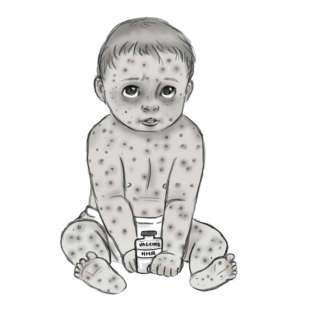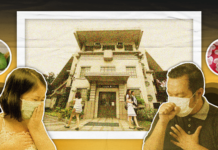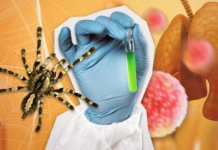MEASLES cases will persist during the dry season, an infectious diseases specialist from UST warned, urging the public to avail of vaccines.
Immunization rate in the Philippines went down in what health officials blamed on the fears triggered by the controversy over the anti-dengue vaccine dengvaxia.
“We expect (measles) cases to increase further in the next few months if we will not be able to control transmission,” Dr. Jay Ron Padua noted.
Measles, locally known as”tigdas,” is a respiratory infection caused by the measles virus which complications may include diarrhea, ear infection, pneumonia, infection in the brain, malnutrition and blindness, as per the Department of Health (DOH).
It is “highly contagious” and the virus can be transmitted via direct contact of infectious droplets or by airborne spread, according to Padua.
Most fatalities recorded are due to pneumonia or inflammation of the lungs and severe complications in the body, including the brain.
Based on a DOH report, 261 people died in 16,349 measles cases since Jan. 1 this year.
The DOH declared a measles outbreak in February in Metro Manila, Central Luzon, Calabarzon, Western Visayas and Central Visayas.
Due to high number of measles cases, the DOH launched a National Immunization Programme called “Ligtas Tigdas,” and several regions such as Mimaropa, Ilocos Region, Eastern Visayas, Northern Mindanao and SOCCSKSARGEN (South Cotabato, Cotabato, Sultan Kudarat, Sarangani, and General Santos) are reportedly strictly monitored.
Vaccine scare
Some doctors argued that the measles outbreak in several regions in February resulted in the vaccine scare caused by the Dengvaxia controversy in 2017.
“Because of the misinformation regarding the dengue vaccine (Dengvaxia), a lot of parents lost confidence on all the vaccines, or vaccines in general, and did not allow their infants and children to get vaccinated. Hence, they are most susceptible to get the [measles] infection,” Padua said.
Dr. Anthony Leachon, the independent director of Philhealth and a UST alumnus, stressed that the measles outbreak was caused by “lack of trust” in vaccination among the public.
“Any suspected case of measles must be contained or isolated to avoid transmission to susceptible individuals, and vaccinate these individuals who have no evidence of immunity to measles,” Padua said.
Individuals who are not immune to measles are those who did not have the measles infection in the past, or those who did not have the vaccine “Measles-Mumps-Rubella” (MMR) or had incomplete doses.
According to Centers for Disease Control and Prevention (CDC), MMR vaccine is extremely safe and effective, and causes no side effects in most children.
In the Philippines, the MMR vaccine must be given to a nine-month-old baby, or as early as six months old when experiencing an outbreak.
Although the priority now is vaccinating children five years old and below, as they are most susceptible, adolescents and adults can also have the MMR vaccine in two doses, at least two weeks apart, he said.
Symptoms
Leachon told the Varsitarian that children should be immunized with anti-measles vaccine and be brought for immediate check-up once they experience the symptoms of measles such as cough, red eye and runny nose.
Once a person contracts the measles virus, an incubation period of seven to 14 days, but mostly 10 to 12 days, occurs.
Padua explained that an infected person would develop cough, coryza or colds and conjunctivitis, followed by high grade fever with noticeable maculopapular rash, which is a reddish flat area on the skin that appears with small confluent bumps, on the hairline and at the back of the ears, face, trunk and extremities on the fifth day.
Until the rash reaches the soles of the feet, the fever would subside and the skin will start to peel upon the disappearance of rash.
Leachon noted that parents should “minimize interaction” between sick and well children, as children are especially susceptible to infection.
He added that it is necessary to ensure that children always use hand sanitizers, alcohol and face masks as a form of precaution against the virus.













